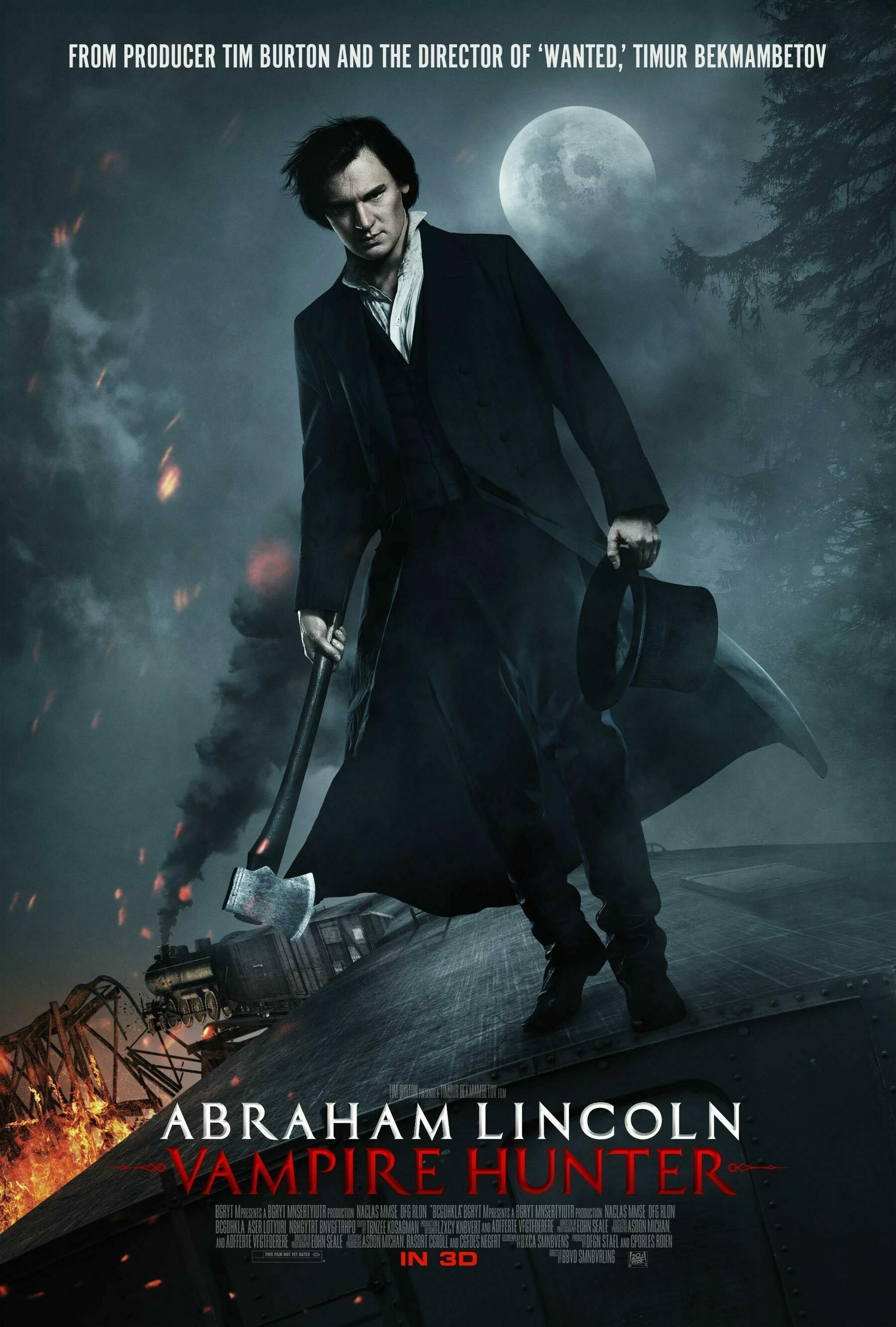Blog
Abraham Lincoln: Vampire Hunter (2012): A Review
In the world of movies, there are varying levels of good and bad.
On the side of good, there’s good. There’s great. There’s life changing. There’s even “great but I never need to see again” (hello Schindler’s List and Requiem for a Dream).
On bad, there’s just plain bad. There’s awful. There’s the weird good bad, a movie you and your friends can see, drink with and laugh at. And finally, there’s the worst bad, in my eyes. Boring bad. A bad so dull that you’re just sort of surprised that the film exists, and no one even bothered to stop it.
And that, my friends, is the realm where Abraham Lincoln: Vampire Hunter exists.
I know, you’re already asking yourself, should I have been surprised by this turn of events? Honestly, I was.
Sure, based on the title alone, AL:VH was kind of this summer’s Cowboys & Aliens, a film that no matter what, wouldn’t gain respect based on title alone. What made this situation different, however, was I had some decent reason to believe that with Lincoln, this movie had a chance to work.
Over my vacation this past week, I had the pleasure to read Unholy Night, the latest book by Seth Grahame-Smith, who wrote the novel that Abraham Lincoln: Vampire Hunter was based on (and he even did the screenplay). A retelling of the tale of the Three Wise Men, it’s actually a very enjoyable and compelling read. And while I have yet to read the book this film is based upon, I’ve heard quite good things. Joining that, behind the camera, we have Russian filmmaker Timur Bekmambetov, who between Night Watch, Day Watch and his American debut with Wanted, has been three for three as far as I am concerned.
Alas, this did not make a good pairing.
If you haven’t already figured out from the name of the film, the plot is an alternate history of Abraham Lincoln, which reveals that our sixteenth president was also a former (the only?) hunter of vampires. That’s really all you need to know, as that’s about all the movie gives you.
Sure, the world of Vampires is decidedly in Bekmambetov’s wheelhouse, but the way the film plays out is bizarrely disjointed and lifeless. We jump from spot to spot in time, with very little connection between scenes and set pieces (besides a slowly growing, but ultimately small supporting cast), and you’re left to accept the action on screen, as surreal as it is, simply because it is there.
We see literally four decades of Lincoln’s life take place across this tale, but not a single moment feels like it plays out in full. Sure, we’re “filling in the blanks” with vampire action, but without the stories to bind them, it feels like a very weird walk down alternate history lane. One of the big cruxes of the film is the romance between Mary Todd and Abe Lincoln, and that just sort of occurs and is accepted, without even so much as a moment of physical intimacy between our leads. Abe’s black friend from childhood, Will, returns later as an adult, a moment which you’re supposed to assume is key in Lincoln’s life - but considering we saw all of three seconds of their childhood, there’s no weight, there’s nothing earned.
And this same lack of weight unfortunately bleeds into the action as well. Over his three films, Bekmambetov has built a style of sorts - floaty, CG-assisted action sequences that shift in and out of slow motion. It continues here, but is used so regularly that it almost feels like parody. And perhaps it’s because I saw this in (ugh, post-converted) 3D, but the CG assistance was glaringly awful.
I wish I could say this surreal film is helped by a solid cast, but while not bad, the cast is ultimately forgettable. Our lead vampire villains (Rufus Sewell and Marton Csokas) should be chewing up scenery, but instead take only small bites, bringing little energy to the film. Dominic Cooper seems to be trying to channel Robert Downey Jr.’s Sherlock Holmes as Vampire Hunter Henry Sturges, but he doesn’t entirely commit to the kook. There’s an enjoyable cameo from Alan Tudyk, and as always, I enjoy the work of Mary Elisabeth Winstead as Mary Lincoln, but there’s nothing truly memorable from their performances here. The biggest shame is the lead, Benjamin Walker. He may be the most awkward and personality-less lead in a major studio action film ever, and whoever delivered his prosthetics should be shot. They make him look less like Abe Lincoln at 50, and more like a slightly melted version of Liam Neeson, left under the hot lights at Madam Tussauds.
Really, the only joy of the film comes from the surreal nature of the fact that it exists, it is happening before you, and continues to happen. Grahame-Smith’s screenplay includes some fun Forrest Gump moments, where there are fun links to moments in history, but they’re just cursory gags in a film just longing for a purpose.
Under the right eye, with the right lead, this could have been a shlock classic. As it stands, Abraham Lincoln: Vampire Hunter’s greatest joy is simply that it has happened. Oh, and 3D fans? Don’t bother. All you’re missing out on is a cool eye effect.
This weekend - go see Brave.

Tuesday June 19, 2012